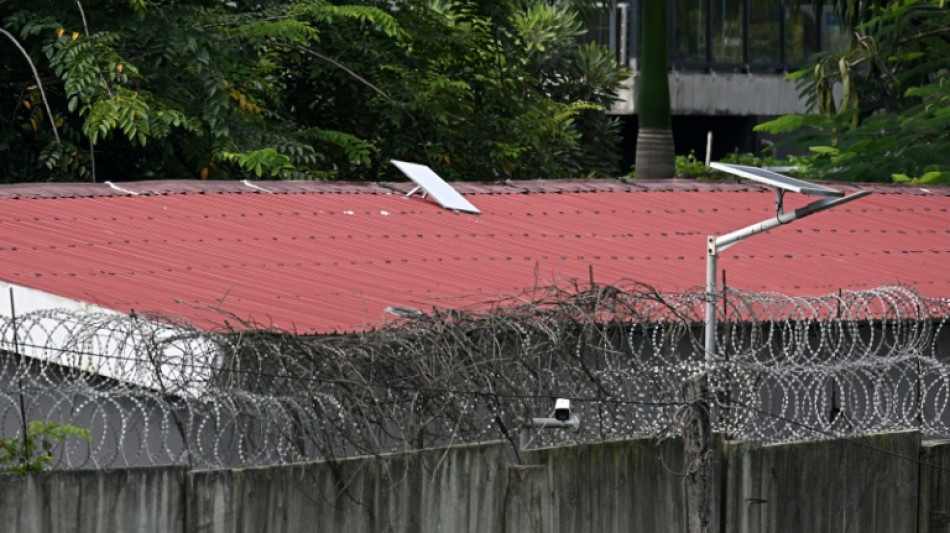
RBGPF
0.1000

SpaceX has cut service to more than 2,500 Starlink internet devices at Myanmar scam centres, a company executive said Wednesday, after AFP revealed that their use had exploded in the illicit industry.
Sprawling compounds where internet tricksters target foreigners with romance and business cons have thrived along Myanmar's loosely governed border during its civil war, sparked by a 2021 coup.
A highly publicised crackdown starting in February saw around 7,000 workers repatriated and Thailand enact a cross-border internet blockade.
But an AFP investigation this month revealed construction has continued apace, while Starlink receivers have been installed en masse, seeming to connect the hubs to the Elon Musk-owned satellite internet network.
SpaceX's vice-president of Starlink business operations, Lauren Dreyer, said the company "disabled over 2,500 Starlink Kits in the vicinity of suspected 'scam centers'" in Myanmar.
Her post on X did not say when the terminals were disconnected.
The online scam industry has boomed across Southeast Asia, conning victims out of up to $37 billion in 2023, according to a United Nations Office on Drugs and Crime report.
Cambodia deported 64 South Koreans last week accused of links to scam networks, with police seeking arrest warrants for most on their return.
Thailand's deputy finance minister Vorapak Tanyawong resigned on Wednesday following allegations linking him to Cambodia-based cyberscam networks.
Myanmar's border regions with Thailand and China have become particularly fertile ground for the fraud factories where some workers are lured or trafficked, while others go willingly.
Starlink did not have enough traffic to register as one of the country's internet providers before February, but ranked top every day from July 3 until October 1, according to the Asian regional internet registry, APNIC.
The powerful US Congress Joint Economic Committee says it has begun an investigation into Starlink's involvement with the centres.
- 'Leaving in chaos' -
Myanmar's junta said this week it had raided KK Park -- one of the country's most notorious scam centres -- and seized Starlink terminals.
People there said raids were continuing on Wednesday, and an AFP reporter saw more than 1,000 people travelling north away from the site by foot, on motorbikes and crammed into pickup trucks.
"Around 10:00 am Myanmar military soldiers in four trucks arrived to our site," said one employee leaving KK Park, who declined to give his name for security reasons.
"Workers are leaving in chaos," he added.
Experts say Myanmar's military turns a blind eye to scam centres which profit its militia allies in the region who are crucial in the civil war.
But the junta has also faced pressure to shut down the scam operations from its military backer China, irked at the number of its citizens both participating in and being targeted by the scams.
The haul of Starlink terminals the junta said it seized this week numbered only 30, a fraction of the thousands which independent analysts have documented at KK Park.
Nathan Ruser, an analyst at the Australian Strategic Policy Institute, said the Myanmar military is attempting a "balancing act" to please both China and the militias aligned with the junta -- "tokenistically" taking action "while actually not doing anything".
But as night fell on Wednesday, a resident of Mae Sot, just over the border in Thailand, said KK Park appeared largely abandoned.
"Usually at this time in the evening it is lit up brightly," they told AFP, speaking anonymously for security reasons.
"Today I only see some lights," they added. "I don't see the lights on in the dormitory buildings."
Erin West, a longtime US cybercrime prosecutor who resigned last year to campaign full-time against scam centres, said its closure would be "a drop in the ocean".
"If there is a crackdown at KK Park, this is a small portion of what's happening at KK Park," she told AFP.
"And KK Park is a small portion of the number of compounds in the world that are doing this dirty business."
W.Urban--TPP